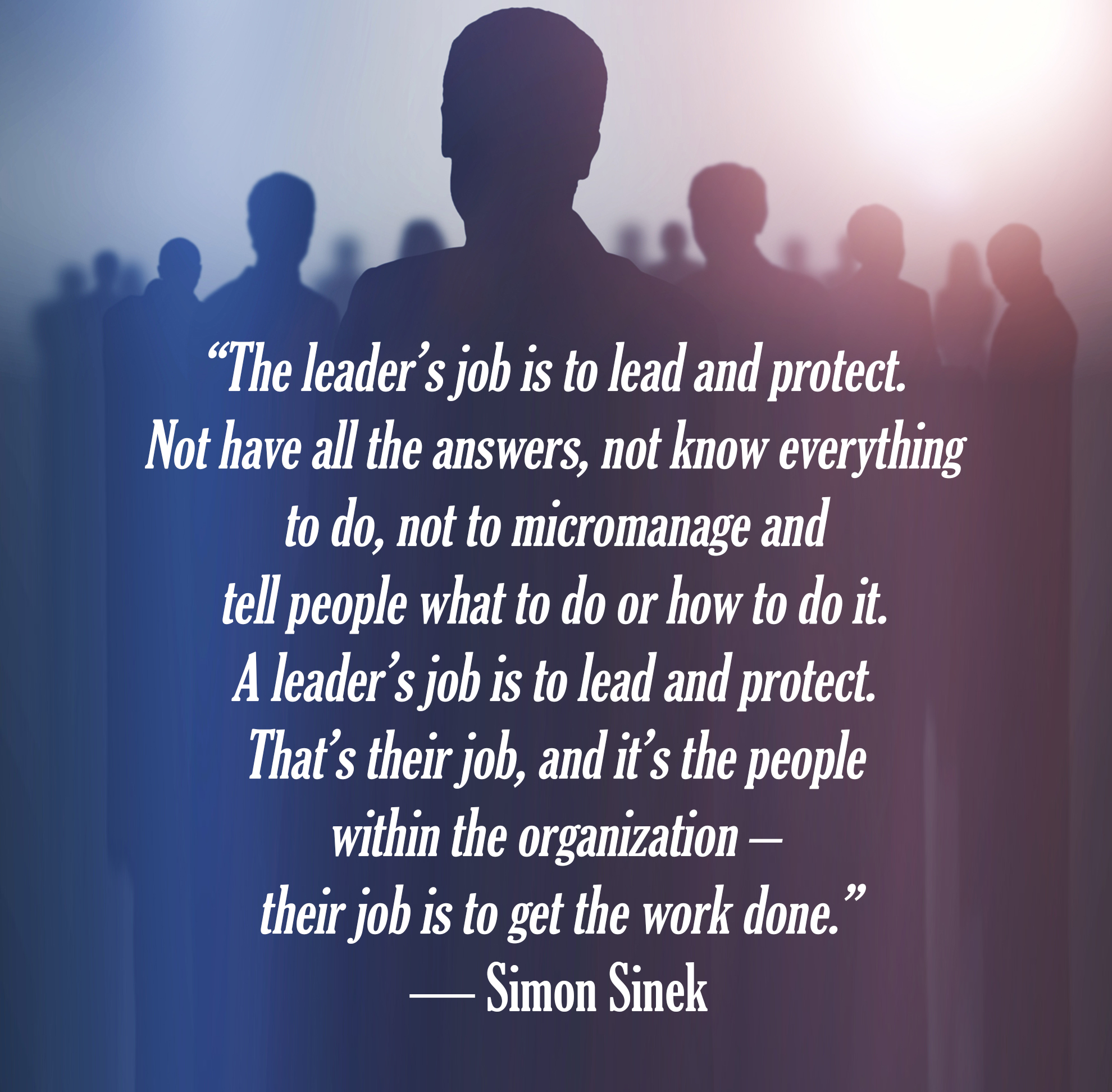“I happened to be walking down the hallway past Scott’s office, when I heard Jessica complain to Scott about my micromanaging”, moaned Mike. “The last thing I ever thought I was was a micromanager” ☹. Juan Carlos replied, “It’s hard for me to picture you micromanaging. However, I have a manager that reports to me who consistently micromanages his direct reports, so I’m interested in any advice on this topic”.
“So let me ask this”, started Cindy, “how many direct reports do you have and have you ever had anyone else accuse you of micromanaging?” Mike replied, “I currently have six direct reports: all managers. I was accused of micromanaging early in my management career; but that was years ago.”
“OK’” continued Cindy, “then let me ask you this: on a scale of one to ten, how much do you respect Jessica’s judgment, her decisions?” “If I’m honest, probably a 5 or a 6.” “That’s the real problem, Mike,” Cindy pointed out.
“That kinda makes sense”, Juan Carlos jumped back in. I don’t think the manager I have the problem with respects anyone’s decisions except his own.” Sarah laughed, “OK, I think the two situations may be related, but are quite different. JC, I think your manager has an ego problem … self-centered, egotistical. But that’s not Mike. Mike, you just have a lack of confidence in Jessica’s decisions.”
Don chimed in, “I read this study out of the University of Texas that found that high achieving managers’ belief system in their employees was primarily positive, while low performing managers had a predominantly negative belief system. What I found interesting was that even the high performers still had some negative attitudes … it’s just that their positive attitudes were dominant. I would suggest that Mike, you have an issue with Jessica. Juan Carlos, you have an issue with your manager’s belief system … or, like Sarah said, his arrogance!” (Click here for a copy of the UT study.)
“One exercise I participated in that opened my eyes,” inserted Joe, “was when a group of us were in a new manager’s training class and the trainer asked each person to recall who their best manger was, who would be a good role model, and why they picked that person. Almost every person, including myself, mentioned a boss who believed in them and allowed them authority to manage their responsibilities. Made me realize how important trust was.”
“Mike, let’s dig a little deeper. Why is your confidence in Jessica’s decision making so low?” asked Cindy. “I think,” ventured Mike, “because there have been several times where I don’t think Jessica thought through her options thoroughly enough. She seemed reactionary; responding too quickly to issues that arose. More than once the decisions turned out poorly.” “OK. You have lost confidence in her decision making; but micromanaging is not the solution. You’ve got to raise her critical thinking skills; perhaps slow her down a little.” Wise Cindy was on her pedestal again! “It might be too late to go over all her poor decisions, but I think you need to go over the last two or three with her … review her decision-making process and coach her on a more thorough, less reactionary process. Perhaps you can agree on a process for the next time where she consults with you before making a decision.” “Cindy,” replied Mike, “that’s why I pay money to be in this group!” “Maybe I should raise the fee”? asked Don. ”You’re very funny,” someone quickly replied.
Joe woke up & joined in, “JC, your problem is totally different. You’ve got to get your manager to see he has a character flaw. How do you do that?” Sarah chimed in, “You may not be able to! Some sort of confrontation, almost intervention is needed. The only thing that I saw work was using a 360° assessment, where the individual got overwhelming feedback from several direct reports. That forced the person to acknowledge that his attitude was a problem; and he was then willing to accept help. In situations where I tried to point it out myself, the person just discounted it as only my opinion. Even though I was their manager and pointed out several instances where it was an issue, they still contended that it was just my inaccurate perception. If you can’t get them to acknowledge they have a problem and accept help, you just have to let them go. You just can’t keep an arrogant, micromanager around.”
“Looks like I have a challenging month ahead of me”, concluded Juan Carlos; “I think I’d rather have Mike’s problem than mine!”
——–
If you’ve ever wondered what you could learn from your peers, found yourself feeling a bit lonely at the top and/or wanting to get feedback / confirmation from trusted colleagues, yet had no inner circle of trusted confidantes to turn to, this is your chance to give Inner Circle CEO Peer Groups a try.
Request to participate in an actual session at no cost with no obligation to join and a 90-day money back guarantee.







